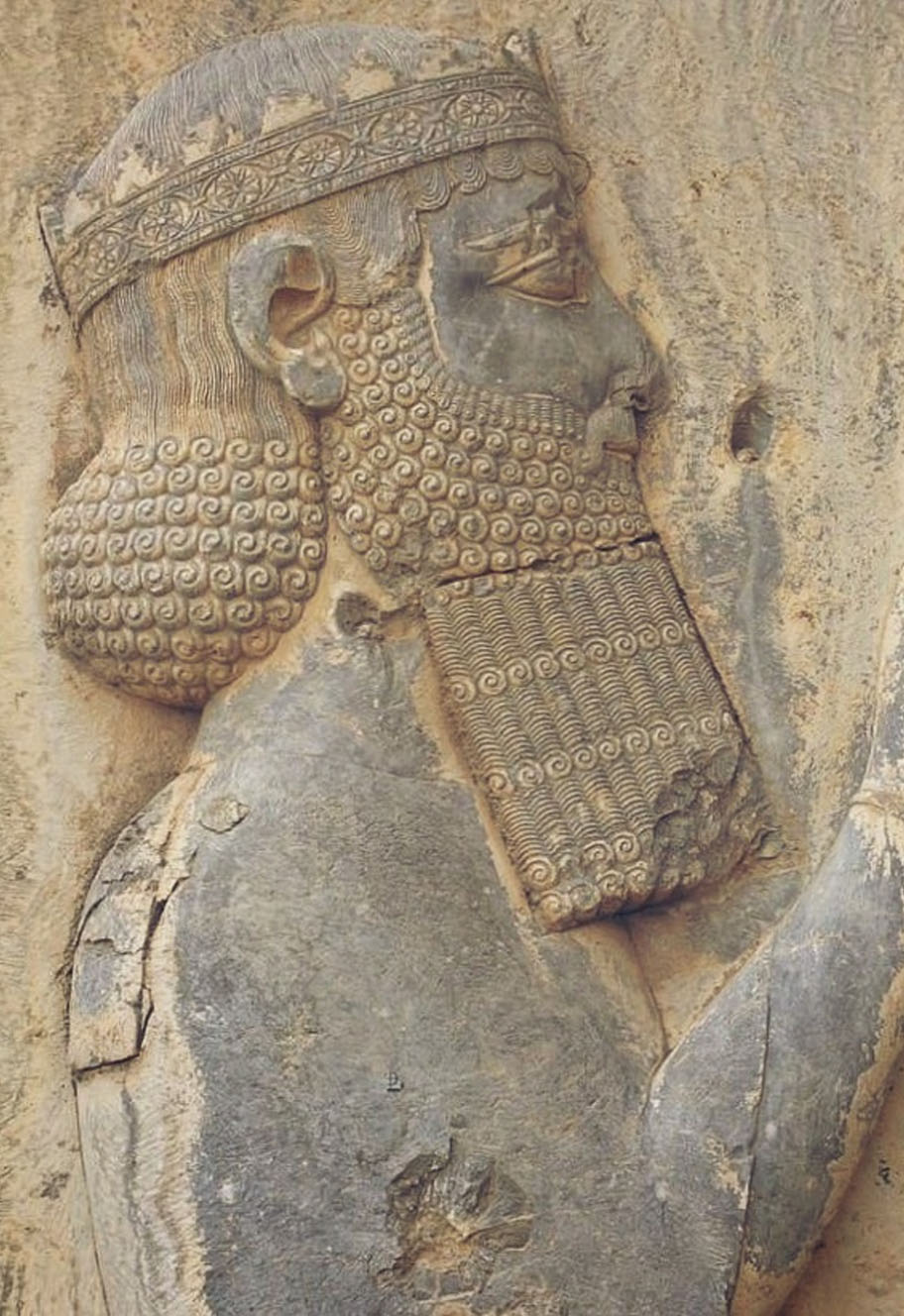Darius I
Born:
C. 550 BCE
Died:
486 BCE
Darius I, also known as Darius the Great, was a prominent Persian king who ruled the Achaemenid Empire at its peak. He is best known for his administrative genius, military campaigns, and efforts to strengthen and expand the Persian Empire. Here are key aspects of Darius's life and contributions:
Early Life: Darius was born around 550 BCE into the Achaemenid dynasty. His father, Hystaspes, was a satrap (governor) of Bactria. Darius served as a spear-bearer for the king, Cambyses II, and participated in military campaigns before eventually rising to power after Cambyses' death.
Ascension to Power: Darius became king in 522 BCE after overthrowing the usurper Gaumata, who had falsely claimed to be the brother of Cambyses. His rise to power was marked by the Behistun Inscription, a monumental relief and text that details his right to rule and the legitimacy of his reign.
Administrative Reforms: Darius is renowned for his administrative prowess. He divided the empire into satrapies, each governed by a satrap, and established a systematic tax system. He also standardized weights and measures, introduced a new coinage system, and built extensive road networks, including the Royal Road, which facilitated communication and trade across the empire.
Military Campaigns: Darius expanded the Persian Empire through various military campaigns, extending its boundaries into the Indus Valley, Thrace, and Macedonia. Despite these successes, his attempt to conquer Greece was thwarted by the Greeks' victory at the Battle of Marathon in 490 BCE.
Construction Projects: Darius commissioned numerous construction projects, including the construction of the new capital at Persepolis and the completion of the Suez Canal, which connected the Nile River to the Red Sea. These projects showcased the wealth and architectural prowess of the Persian Empire.
Religious Policies: Darius was tolerant of different religions within his empire and supported various religious practices. He is credited with restoring temples and respecting the customs of the diverse peoples under his rule, which helped maintain stability and loyalty throughout the empire.
Legacy: Darius I's legacy is marked by his contributions to the administration, infrastructure, and expansion of the Persian Empire. His reign set a high standard for governance and left an enduring impact on the history of the ancient world. He is remembered as one of the greatest kings of the Achaemenid dynasty.

Quick Facts
- Darius's administrative reforms and infrastructure projects significantly strengthened the Persian Empire.
- He expanded the empire's borders through successful military campaigns, though his invasion of Greece ended in defeat at Marathon.
- Darius commissioned the construction of the new capital, Persepolis, and completed the Suez Canal.
- His policies of religious tolerance and respect for local customs helped maintain stability across the vast empire.
Further Reading
Art &
Architecture
Ancient Greek art and architecture, with its harmonious proportions and timeless elegance, continue to inspire awe and admiration millennia later.
Discover
Greek Mythology & Mythical Characters
Greek mythology, a rich tapestry of gods, heroes, and mythical creatures, captivates the imagination with its tales of love, betrayal, and epic adventures that delve into the depths of the human psyche.
Discover
Ancient Greek History
Ancient Greek history, marked by remarkable achievements in democracy, philosophy, and warfare, shaped the foundation of Western civilization, leaving an indelible legacy of innovation and cultural influence that continues to resonate to this day.
Discover
Ancient Greek Olympics
The ancient Greek Olympics, held in Olympia every four years, celebrated athleticism, unity, and cultural pride, serving as a testament to the enduring spirit of competition and excellence that transcends time and borders.
Discover
Ancient Greek Wars
Ancient Greek wars, such as the Persian Wars and the Peloponnesian War, were pivotal conflicts that shaped the course of history, highlighting the struggle for power, independence, and the clash of civilizations in the ancient Mediterranean world.
Discover
Ancient Greek Culture and Society
Ancient Greek culture and society, characterized by its emphasis on art, philosophy, and civic engagement, fostered a vibrant intellectual and social landscape where innovation flourished, democracy thrived, and the pursuit of knowledge and excellence was celebrated as fundamental values of civilized life.
Discover